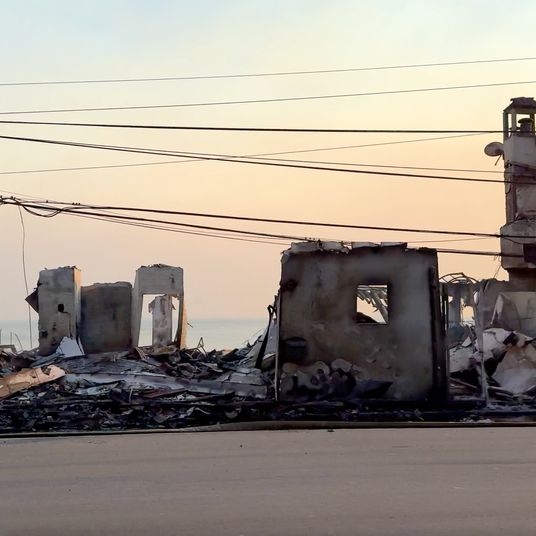
Last month, federal prosecutors said in a court filing that Jeffrey Epstein was worth at least $500 million and brought in more than $10 million in annual income. The accused child-sex trafficker, who was found dead in his Manhattan jail cell Saturday, also owned a $77 million Upper East Side mansion; a private island in the U.S. Virgin Islands; and homes in Palm Beach, Paris, and New Mexico. What becomes of all that wealth now?
Three days after Epstein’s apparent suicide, it’s a question with no clear answer. Federal prosecutors last month indicated their intention to seize any of Epstein’s properties where he sexually abused minors. But now that he’s dead, the criminal-asset-forfeiture option is dead, too.
But the Feds could now move to a civil-forfeiture case, the Miami Herald explains.
If a civil forfeiture is filed, a federal judge in civil court would rule on the crimes laid out in the prosecution’s case using the standard of a “preponderance of evidence,” a lower threshold than that used to determine guilt in criminal cases.
Prosecutors would have to present compelling evidence that each asset to be seized was connected to criminal activity. No matter what, Epstein himself won’t be found guilty of the crime, but his estate could still be made to provide restitution to his victims.
Epstein’s accusers could also file civil suits. Lisa Bloom and Roberta Kaplan, lawyers representing several of the women who allege abuse by Epstein, have said that’s just what they intend to do. “Give his entire estate to his victims,” Bloom tweeted Sunday. “It is the only justice they can get. And they deserve it. And on behalf of the Epstein victims I represent, I intend to fight for it.”
Bloom also called for Epstein’s assets to be frozen until these civil suits make it to court.
These lawyers won’t be content with only going after the assets that Epstein has claimed. “They will likely look to offshore bank accounts, Mr. Epstein’s close associates and to his only surviving close relative, his brother, Mark Epstein, for additional assets as they explore potential civil cases against Jeffrey Epstein’s estate,” the Wall Street Journal reports.
The paper adds that Mark Epstein owns a condo on East 66th Street that he bought from Les Wexner in the ’90s. Wexner, the L Brands CEO, has deep financial ties to Jeffrey Epstein and recently accused his former money manger of stealing tens of millions of dollars from him. The condo on
East 66th, the WSJ reports, is linked to Mark Epstein’s late brother’s firm
J. Epstein & Co.
While winning civil suits against Epstein would have been easier after a criminal conviction, his victims could still prevail in such cases. Though, even if they do, it’s not clear how much money they’ll be able to recover. New York lawyer Paul Callan told Reuters that Epstein may have found a way to stop alleged victims from getting to his assets. “I would suspect that Epstein has found a way to shelter a lot of his assets,” he said. “They may get a judgment, but they may have trouble collecting it.”
Epstein’s alleged victims may not be alone in their attempt to claim a piece of his fortune. As the Miami Herald reports, the firm Morse Genealogical Services, LLC, has launched epsteinheirs.com in an attempt to find the “unknown children of the late Jeffrey Epstein” who may have a claim against his estate.
The website says: “If you believe you may have given birth to a child fathered by the late JEFFERY EPSTEIN who recently committed suicide, or that he may have been your biological father, please contact us immediately, without delay!!”
Another question that has yet to be answered is whether Epstein had a will. If he did, it’s not obvious to whom Epstein would have left the money. With no wife and no kids, attention turns to his brother, Mark.





























